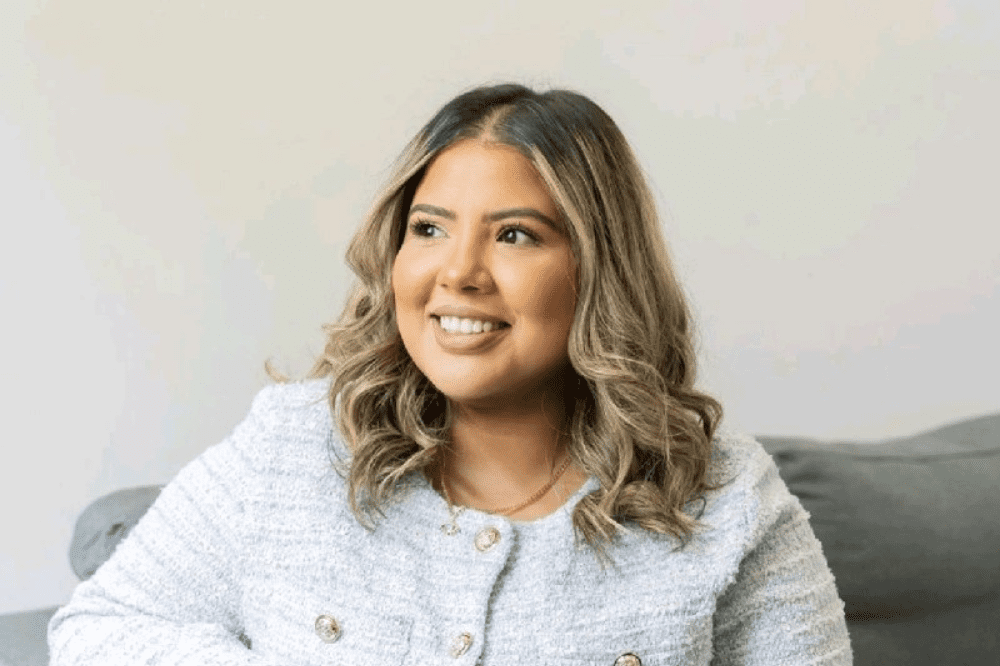What is the most important skill brokers can have?

What is the most important skill brokers can have? | Insurance Business Canada
Insurance News
What is the most important skill brokers can have?
Investing in this could help bring long-term success
Insurance News
By
Gia Snape
Many customers find the world of insurance convoluted and daunting. Even amid increasingly digital distribution channels, the broker’s role as a guide and advisor remains paramount.
“The biggest skill that you can have as a broker is not complicating things,” Aneeza Ahmad (pictured), marketing manager at KASE Insurance.
“The products we deal with are sometimes very complex. Insurance is intangible, so it’s even harder to talk about with clients because it’s not something you can see, touch, or feel. To me, the ultimate broker can simplify the insurance terms so that anybody can understand.”
The evolving role of insurance brokers
Ahmad shared her insights ahead of the Insurance Business Broker Summit in Toronto, where she will moderate a panel tackling brokers’ evolving roles and how they can succeed in today’s environment.
Brokers act as a bridge between clients and insurers, helping clients navigate the intricacies of policies and ensuring they understand their options.
For Ahmad, the evolving business landscape makes it crucial for brokers to anticipate trends and advocate for their clients’ needs. She described her approach to insurance communication as centred on empathy, clarity, and simplicity.
“I would explain coverage [to customers] like if they were friends or family members,” she said. “Customers have their niche and specialized knowledge in their field, but if you’re not working in insurance, it’s hard to know the little nuances. That’s also where we need to pursue continued education for ourselves to continue to help our clients.”
Brokers can demystify complex insurance products and risk management strategies by providing educational resources, workshops, and seminars. This enhances the client’s understanding and strengthens the broker’s credibility as a trusted advisor.
“I would highly recommend signing up for any webinar that comes up. Insurance companies offer tons and tons of webinars and seminars on many different topics, from health insurance and auto insurance to more complex things like hospitality and professional liability risks,” she said.
“I think sometimes these resources are underutilized because there are so many of them. It does take time out of our day to sit down for an hour, sometimes two hours, and take those courses. But they’re so helpful and they’re a constant refresher as to what is going on in the industry.”
What is the key to long-term success for brokers?
By investing in their education, brokers can better serve their clients and stay ahead of the curve.
However, engaging clients in their insurance education journey can also help brokers build trust and mutually beneficial relationships.
“Many of these webinars are also open to our clients, which is such a great feature,” said Ahmad, who is also a CAIB 2 (Canadian Accredited Insurance Broker) instructor with the Insurance Brokers Association of Ontario.
“It’s a great little add-on that can help sell insurance. You get continued education, and your insured can be part of the conversation with the insurance market.
“It keeps them in the loop, and it gives them more background information so that instead of trying to Google this information in their own time, it’s coming from a very reputable source, such as the insurance company’s underwriters.”
She encouraged fellow brokers to proactively involve clients in continuing insurance education. At KASE Insurance, she will invite underwriters and insurance providers into the office to do presentations and discuss different topics with the team.
When addressing clients’ concerns about rising insurance premiums, Ahmad returns to conversations about the value of insurance. While costs may increase, insurance provides critical protection during times of need.
“It’s a conversation that’s happening more and more in today’s economy, with prices going through the roof,” she said. “At the end of the day, insurance is another cost for businesses, especially small businesses that can be struggling during this time.”
Finally, Ahmad highlighted the importance of nurturing strong relationships with underwriters and carriers. She emphasized the symbiotic relationship between brokers and underwriters, with brokers acting as the face of insurance and underwriters providing essential support and expertise.
“Having a great relationship with our insurance partners and our underwriters makes us much stronger as brokers,” Ahmad said.
“I love picking up the phone and calling my underwriting partner. I’m not just talking to them about different risks and asking them questions; I’m getting as much information from them.
“Strong relationships with the underwriters have helped me build stronger relationships with my clients because I know I have that support.”
Want to join the conversation on broker strategies amid a dynamic and changing insurance landscape? Register now for the inaugural Insurance Business Broker Summit in Toronto on April 24.
Related Stories
Keep up with the latest news and events
Join our mailing list, it’s free!






